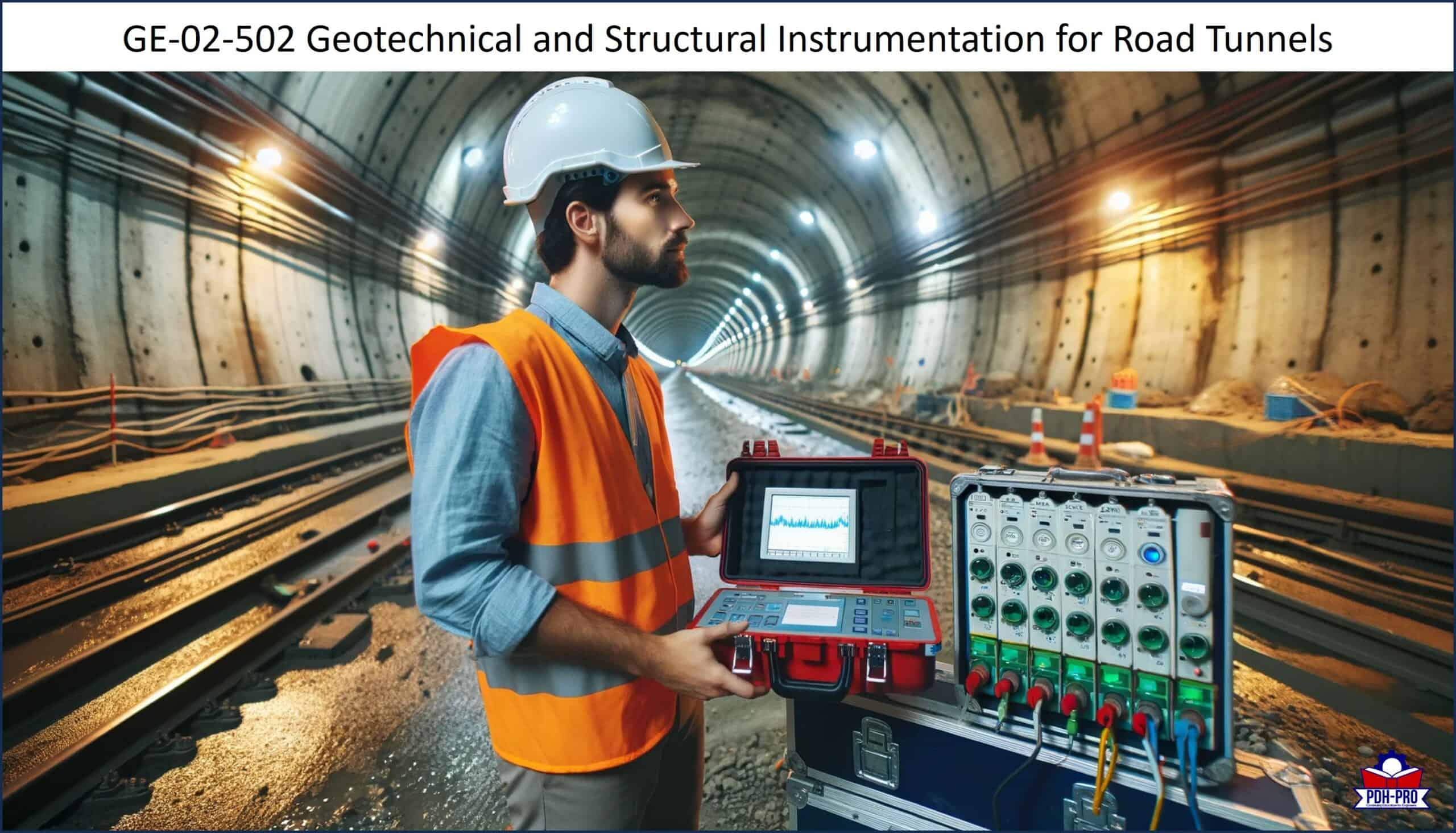
Geotechnical and Structural Instrumentation for Road Tunnels
The primary purpose of geotechnical and structural instrumentation is to monitor the performance of the underground construction process in order to avoid or mitigate problems. Advanced and refined types of instrumentation abound, and electronics coupled with computers have made remote monitoring, even from half a world away, practically an everyday affair. It is common for even medium sized projects to run a computerized database that reduces raw readings to usable data and report on any combination of instruments and data plots within minutes.
This course presents the typical geotechnical and structural instrumentation for road tunnel construction. It covers the movement of ground away from the tunnel, structures within the zone of influence, the tunnel and adjacent tubes as well as dynamic ground motion from drill & blast operations.
Once you complete your course review, you need to take a multiple-choice quiz consisting of twenty (20) questions to earn 4 PDH credits.
Learning Objectives
This course is intended to provide you with the following specific knowledge and skills:
- The equipment used to monitor ground movement and their applications and limitations
- An understanding of tunnel deformation and suitable monitoring methods
- Shallow foundations
- Dynamic ground movements associated with tunnel construction
- Groundwater behavior associated with tunneling activities
Download the Course to review and begin earning your PDH credits.
We provide technical courses for PDH credits that meet Board requirements for Professional Engineers, Geologists and Land Surveyors. This course is guaranteed to be accepted in AK, AL, AR, FL, GA, IA, IL, ID, IN, KS, KY, MD, ME, MI, MN, MO, MS, MT, NC, ND, NE, NH, NJ, NM, NV, NY, OH, OK, OR, PA, SC, SD, TN, TX, UT, VA, WI, WV, and WY. Before purchasing this course, please confirm that your state Board is listed above.
